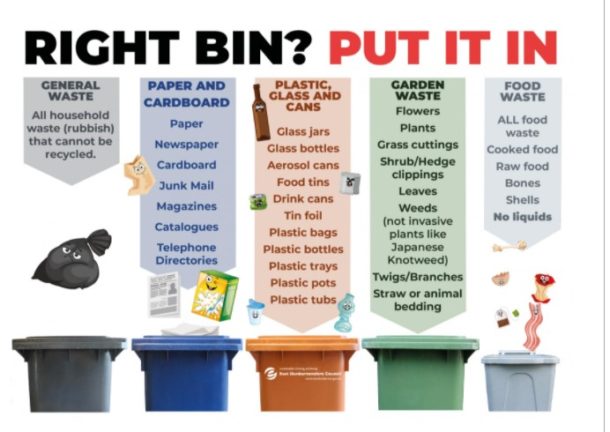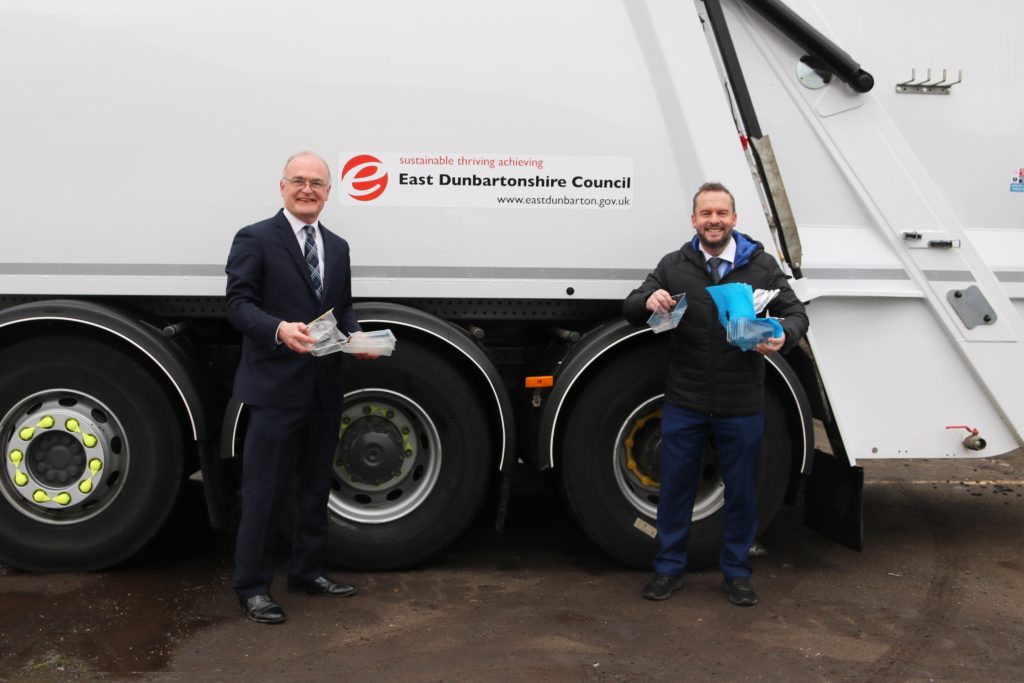From 28 March, the council said residents will also be able to put tinfoil and pots tubs and trays in their brown plastic bins to be recycled.
The material will be processed by Levenseat at its materials recycling facility in Lanark, as part of a contract signed in 2021.
By making the move East Dunbartonshire will become the second Scottish council to collect soft plastics at the kerbside, after Fife made a similar move earlier this year (see letsrecycle.com story).
East Dunbartonshire’s joint council leader Vaughan Moody, said: “We are proud and delighted to announce this expansion to our recycling service. It has been a long-standing aim to increase the items which we can accept, and we are delighted that we can now do so.
“The recent COP26 event in Glasgow brought issues of waste and recycling to the forefront of people’s minds. I know that there is a strong desire amongst residents to do more and we are happy to be able to facilitate that”.
Contract
The move forms part of a processing contract agreed with Levenseat in 2021, replacing its previous contract with Saica Natur.
Saica Natur had said it couldn’t continue on the previous agreement to pay a £1 gate fee per tonne, and instead said it would charge £21 from 2020/21.
The council opted to procure a new contract and signed an agreement with Levenseat. Under this deal, the council now pays a £42.75 gate fee to process its brown bin materials, which also includes glass and aluminium cans.
The higher price was put down to “further changes in market conditions” but included the provision of soft plastics which are to be rolled out this month.
This means while the council now pays £250,000 per year to process material, instead of a profit of £5,000 with Saica Natur, it now offers a wider service to residents.

Expanded recycling
To ensure that the collected plastic will “successfully make it through the recycling process”, all items must be clean and empty, the council advised.
It added that it has “provided a successful, high quality plastic recycling service from the kerbside for over 15 years”, adding that the range of plastic that can be recycled has always been driven by available markets and the best environmental option for residents.
Joint council leader Andrew Polson, added: “This marks a significant move forward in our recycling capability and puts us as one of the leading local authorities when it comes to forging a green future.
“We would like to take this opportunity to thank our communities for helping to support the recycling collection service over the years. East Dunbartonshire residents have consistently been amongst the top recyclers in Scotland, and we look forward to expanding our kerbside service.”
‘Circular economy’
The move by East Dunbartonshire and Fife council comes as five of the largest food producers have pledged to increase investment in a ‘circular economy for plastic packaging’.
In an announcement last week, Mars, Mondalez International, Nestle, Pepsico and Unilever issued a joint statement where they committed to “increasing investment and providing support for a series of public policy interventions to accelerate the transition toward a circular economy for flexible packaging”.
These companies are reviewing packaging designs with the aim to reduce packaging materials, improve recyclability and increase the use of recycled content. They aim to improve recycling infrastructure and uptake of recycled materials to keep packaging materials within the economy.
The companies said flexible Packaging accounts for 44% of the total post-consumer packaging waste in EU, while packaging 66% of the total products volumes.
The following five areas were identified as “key”.
- Policy changes to incentivise circularity: more ambitious recycling targets, landfill ban, minimum incineration for recyclable packaging
- Maximised collection: intensify consumer awareness on circularity, mandatory collection of flexible packaging and harmonised packaging disposal instructions
- Waste management actors to co-pilot circularity for flexibles: better sorting leads to more recycling
- Incentives for advanced recycling: regulatory and investment predictability needed to scale recycling
- Our commitment: substantial investments in realisation of fully circular flexible packaging












Subscribe for free